Commute and Mental Health
The impact Commuting has on your wellbeing

drcommute • October 2021
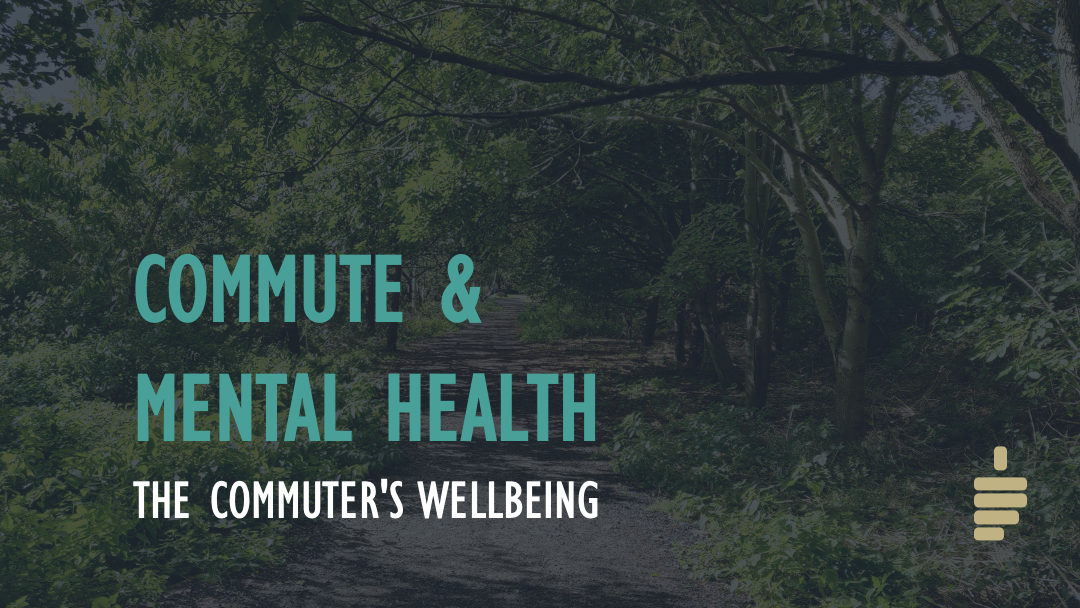
Dear commuter,
In this forever changing world it is clear that both commuting trends and working patterns post-covid are evolving. But are they adapting to the needs of the commuter?
In this article we are going to discuss:
- How does your commute impact your mental health?
- How you can improve your commute?
During covid times, some commuters went from daily commuters to remote workers to part-time commuters again. Since 2020 so much changed because of Covid. Were you all prepared for this shift? Do you prefer to work from home, full-time or do you enjoy commuting some days of the week?
Without a doubt, commute plays an important role in our culture. The average human is a double-sided coin, the family person and the working person. The time you spend commuting is a part of who you are, it’s the rim of the coin, the transition between one side and the other. So don’t think it is just a means to an end. It is paramount that this travel pattern is acknowledged, understood and acted upon.
Unquestionably, commuting times have been rising. The long commuter is now more common than ever before. According to the Eurostat, in 2019 in Europe:
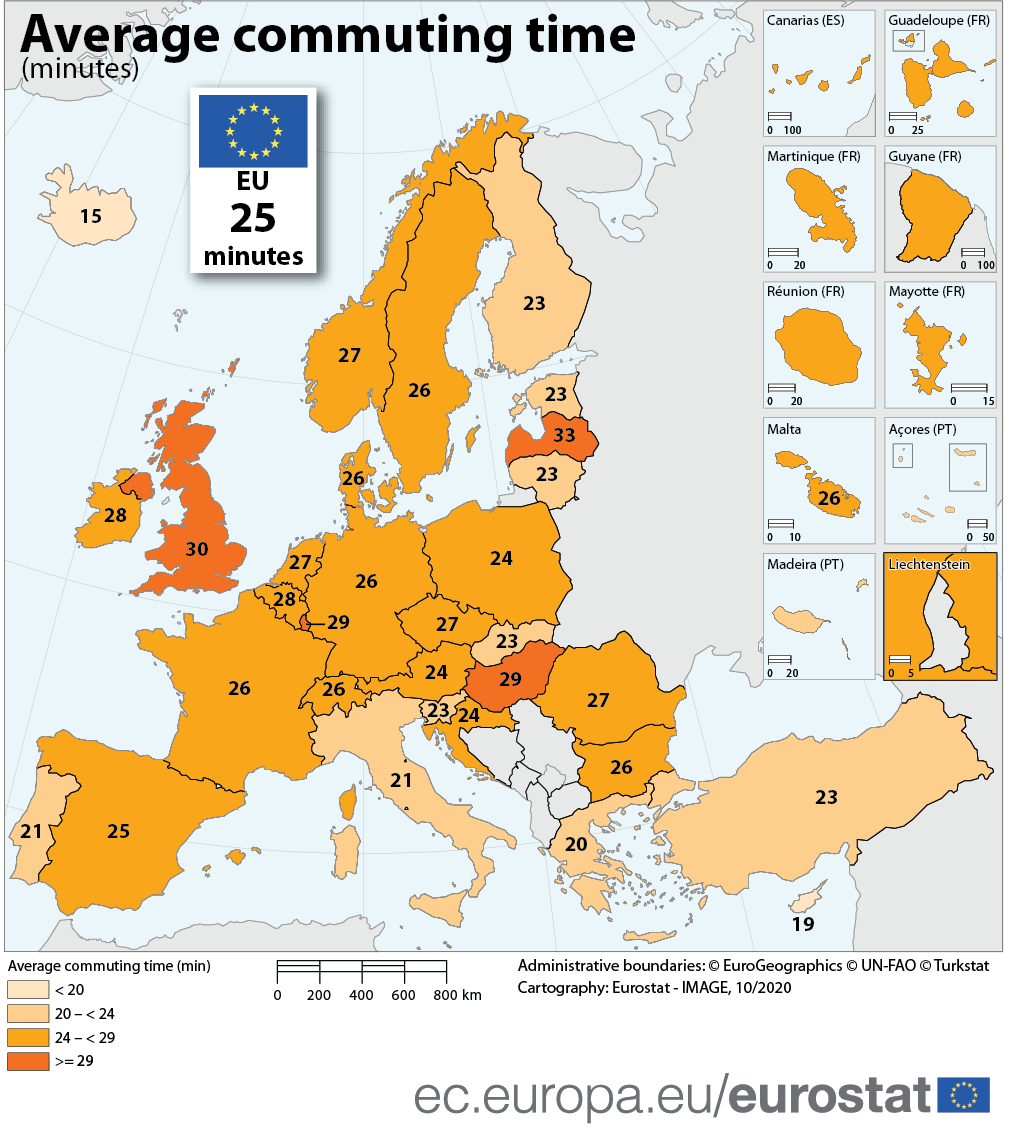
A large number of workers see their commute as a daily activity that is far from being enjoyable. The lack of control and unpredictability are some of the main factors that enhance this perception. Several studies have shown commuting times and trends to have a relevant impact on the commuters wellbeing.
“While mental health may not be as visible as physical health, it is still a vital part of an individual’s overall wellbeing.
Having said that, understanding the commuting trends and the impact it has on the commuters mental health will possibly give solutions to questions that remain unanswered. Enabling future changes in policies and structural urban and transportation design that better address the needs of the commuters.
Commute: General Patterns Identified
General aspects of commute through time:
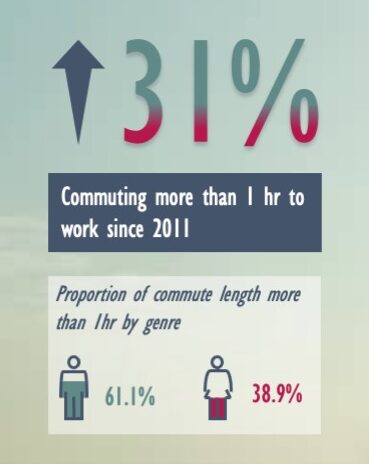 – Increased commute length both in time and miles
– Increased commute length both in time and miles
– Car being the preferred mode of commute
– Men commute longer than women
– Stress factors identified due to congestion, crowding and unpredictability
Commute and mental health: what the research says
Subjective wellbeing in commuting is the perception as a commuter of how well life is during this journey. In other words, it is a self-evaluation that you do during your commute integrating all the positive and negative emotions during this time. This is usually measured through national surveys.
Higher life satisfaction is associated with:
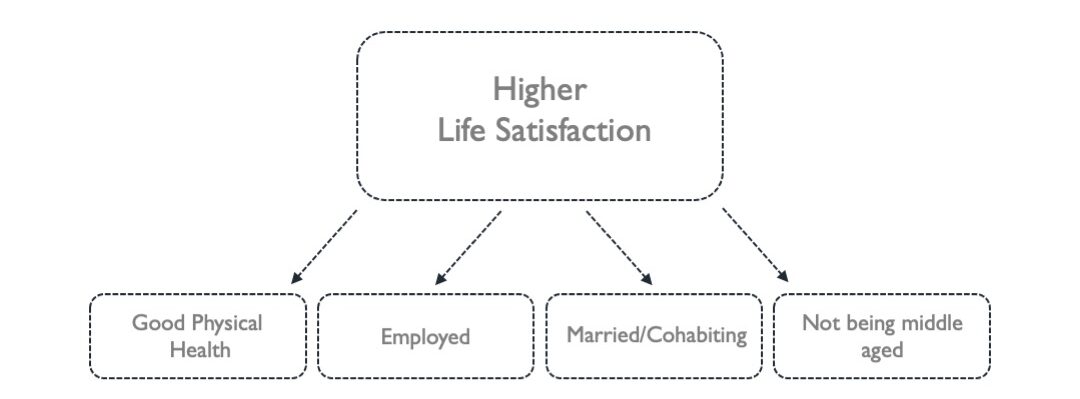
According to this research:
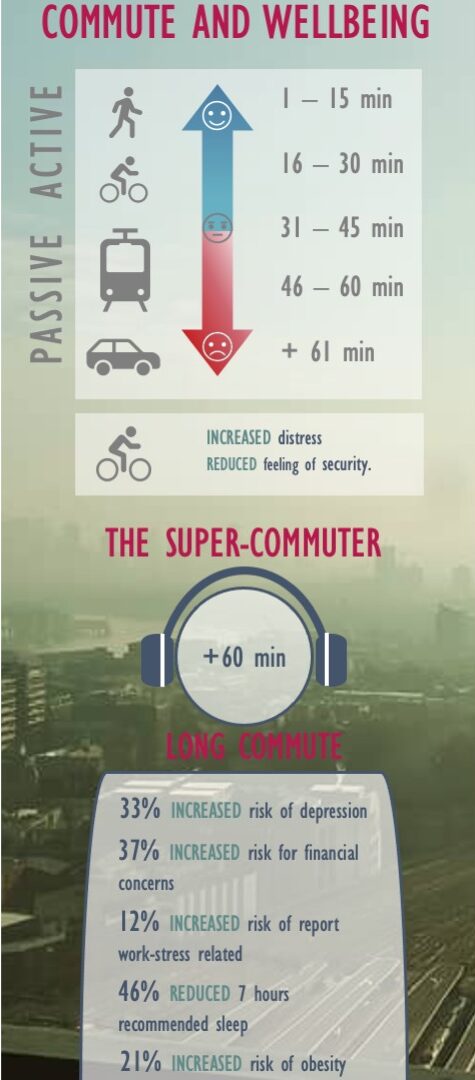
- Longer commuting (60-90 min) times are associated with lower life satisfaction
- The level of physical activity can have an influence on your happiness and wellbeing during your commute
- Active commuting: walking and cycling increases mental health and enhance your mood
- To work: commuters are preparing themselves for the day ahead, working mindset
- From Work: commuters are more open to enjoy their commute
- Higher levels of stress during rush hours caused by: loss of control and unpredictability
- Positive impact whilst commuting with someone
- Women although commute less, are more prone to a negative influence of commuting than men
The commuting and wellbeing study from UWE Bristol added:
- Car commuters report a higher level of stress and more negative emotions than rail commuters
- Commute can be seen positively: it is a time to relax, there is a shift from working person to family person, time for reflection and commuting times can be used in a productive way
- Commuters with greater options in terms of transport demonstrated a higher journey satisfaction
- Negative impact on physical health when commute journeys are longer for car drivers and women, leading to more GP visits
- Switching from car travel to walking, cycling or public transport decreases body-mass index (BMI)
Commute and Wellbeing: Ways to improve your commute
Take advantage of your commute, stop and visualise the kind of day you wish to have, reflect on your accomplishments or progress over the following week. Make use of your commute home as a transition point between work an home mode so you can leave the work mindset for the next day. Try to cut yourself off from business correspondence on the train. Increase active modes of commute like walking or cycling.
These are some tips to enhance your commute experience:
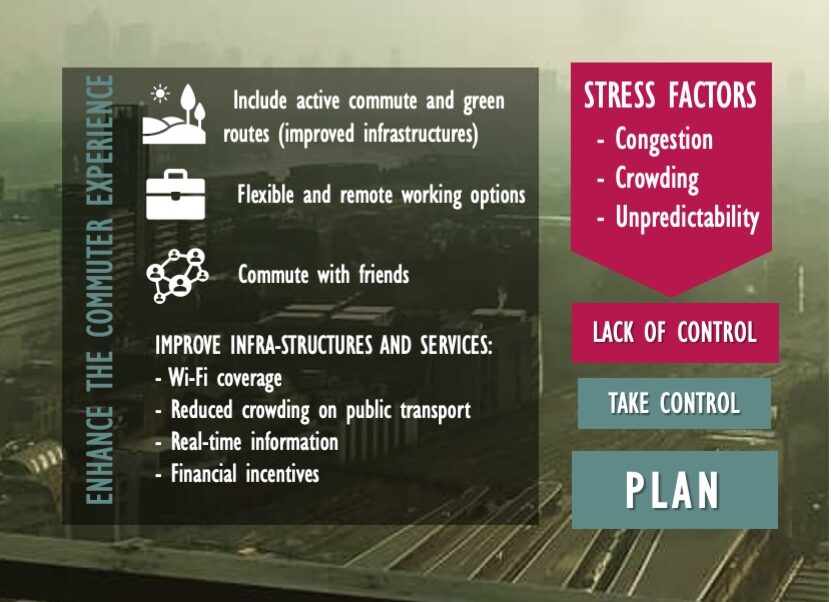
Commute and Wellbeing: what’s next?
In conclusion, with the shift of modern travel behaviour and working patterns, there is clearly a need for new research to be conducted. In order, to increase the understanding of travel patterns, commuters needs and the impact on workers wellbeing.
Modern commuting patterns post covid need to take into account:
- Change in the work pattern – part-time, remote workers.
- Workers with no fixed usual workplace
- Trip Chaining: commuters tend to combine in their primary trip (house to work) non-working related trips (picking up children, grabbing coffee, groceries, gym..)
Several variables need to be accounted for to enable future realistic data collection for future studies. Allowing an in-depth understanding of the commuting patterns of nowadays. Giving the researchers the tools to compare these results and differentiate them across generations and countries. This will allow targeted policy-making to shift and accommodate the commuters priorities and interlink them with urban improvements such as transport facilitation, employment, services etc.
In the near future, it is important to:
- Increase the predictability and ensure the commuter has control of their commute by offering real-time information for public transports, guarantee a ride home programmes
- Offer high-quality Wi-Fi on public transports
- Reduce crowding on public transports, peak times by enabling flexible working patterns
- Increase/Improve green routes options that are safe for walking and cycling
- Financial incentives (eg. tax-free bicycle, transporting prices that suit every type of commuter, full-time, part-time)
- Improve public transports (rapid transit, better integration between services)
In the end, the question is not :
Is the Commute bad for your health but rather how do I improve my commute?
- Plan ahead, be in control of your commute
- Create a healthy morning routine
- If possible, a shorter commute that includes an active mode of commute either walking or using a bicycle
- Be productive: listen to a podcasts, read a book, revise, learn something new..
- Relax and reflect: listen to relaxing music, meditate or play a game.
Please share with us your routines, thoughts and experiences.
Have a lovely journey and please make sure you always put your wellbeing above all.

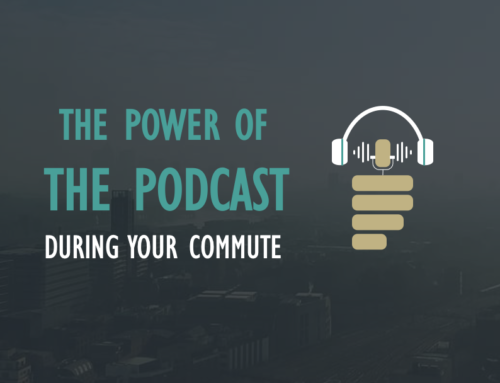
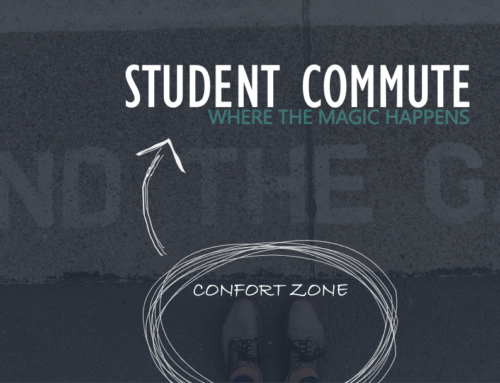
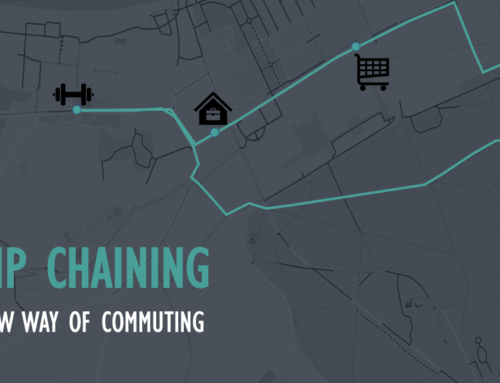
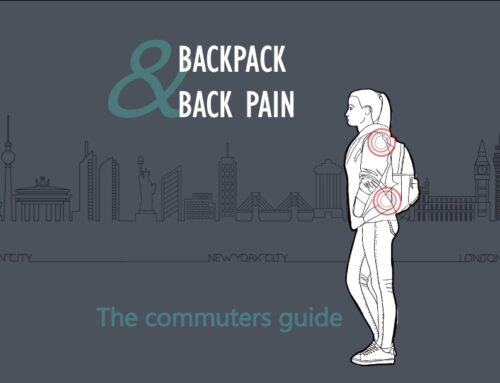
Leave A Comment